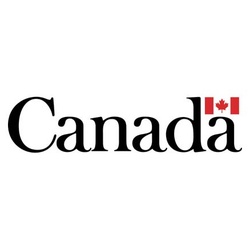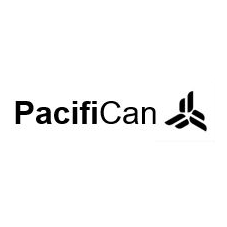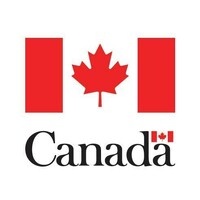
Training tax credit for employers
At a glance
- Maximum amount : 6,000 $
- Up to 20% of project cost
- Unspecified
- Construction
- Manufacturing
- Other services (except public administration)
- Public administration
- British Columbia
- For-profit business
- Sole proprietorship
- All revenue ranges
- All organization sizes
- Indigenous Peoples
- Persons with Disabilities
Overview
Organizations that employ apprentices enrolled Industry Training Authority programs get 20% to 50% up to $6,000 in enhanced tax credits.
Activities funded
The training tax credit in B.C. facilitates employers in reducing their tax liability by hiring apprentices in specific skilled trades programs. Projects eligible for this tax credit focus on employing and training apprentices through structured programs.
- Employ apprentices enrolled in non-Red Seal programs for up to the first 24 months to claim a basic tax credit.
- Employ apprentices in any program—Red Seal or non-Red Seal—completing level 3 or 4 of their training for a completion tax credit.
- Support apprentices from First Nations or those with disabilities to claim an enhanced tax credit in addition to the basic or completion tax credits.
Eligibility
Eligibility for the employer's training tax credit is determined by specific requirements related to the business and its taxable status in British Columbia.
- The applicant must be a sole proprietor, partnership, or corporation.
- The business must be subject to B.C. income tax for the taxation year the credit is being claimed.
- The business must either be a resident of B.C. on the last day of the taxation year or maintain a permanent establishment in B.C. at any time during the taxation year.
- Employees must be working in a position related to their apprenticeship program through SkilledTradesBC and the business must be carried on in B.C. during the taxation year.
- Active members of a partnership can claim their proportionate share of the partnership's tax credit, though limited partners are not eligible.
- The applicant is not eligible if the corporation is exempt from tax under section 27 of the Income Tax Act or if taxable income is exempt under Part 1 of the federal Income Tax Act.
- Corporations directly or indirectly controlled by a tax-exempt entity are also not eligible.
Who is eligible?
Eligibility for the training tax credit is open to sole proprietors, partnerships, and corporations that are subject to B.C. income tax. Specifically, applicants must either be a resident in B.C. on the last day of the taxation year or a corporation that maintains a permanent establishment in B.C. during the taxation year. Employees must be engaged in a business based in B.C. and employed in positions related to the SkilledTradesBC programs. Active members of a partnership can claim their share of the partnership’s credit unless they are limited partners. However, corporations exempt from tax under specific sections of the Income Tax Act or controlled by exempt entities do not qualify. Employers who have apprentices in applicable programs and meet employment and salary criteria can claim the credit.Who is not eligible
Certain companies are not eligible for the training tax credit based on their tax-exempt status. These restrictions ensure that credits are claimed by entities contributing to BC's tax revenues.
- Corporations exempt from tax under section 27 of the Income Tax Act.
- Corporations with taxable income exempt under Part 1 of the federal Income Tax Act.
- Corporations directly or indirectly controlled by a tax-exempt entity for the aforementioned reasons.
Eligible expenses
The training tax credit in B.C. supports employers who provide apprenticeships in both Red Seal and non-Red Seal trades. This credit aims to encourage businesses to engage in vocational training by offering financial incentives.
- Employing apprentices enrolled in non-Red Seal programs to claim the basic tax credit.
- Engaging apprentices who complete level 3 or 4 of any apprenticeship program (both Red Seal and non-Red Seal) to claim the completion tax credit.
- Providing apprenticeships to First Nations individuals and persons with disabilities to claim the enhanced tax credit.
- Documenting and applying eligible salary and wages paid to apprentices during their training period.
Eligible geographic areas
This tax credit is available to businesses operating within British Columbia, Canada. Eligible locations are identified based on their subjection to B.C. income tax and operational presence.
- Businesses in British Columbia, Canada.
How to apply
Determine Eligibility
- Ensure your business is a sole proprietorship, partnership, or corporation subject to B.C. income tax.
- Confirm that your employees are enrolled in applicable apprenticeship programs through SkilledTradesBC.
Collect Necessary Documentation
- Gather copies of your employee’s transcript from SkilledTradesBC and any certificates received upon graduation.
- If applicable, obtain a Certificate of Indian Status card or proof of disability for enhanced tax credits.
Calculate Eligible Salary and Wages
- Calculate the gross salary and wages paid to each eligible apprentice, excluding ineligible types of payments.
- Ensure calculations adhere to the tax credit guidelines, from relevant periods.
Complete the Necessary Forms
- Corporations should complete Schedule 428 and submit it with their T2 Corporate Tax Return.
- Individual employers should fill out the T1014-1 form for submission with their T1 Individual Tax Return.
Submit the Application
- Compile all forms and supporting documents.
- Submit to the Canada Revenue Agency as part of your annual tax filing.
Claim the Credit
Record and Monitor
- Record confirmation and tracking details of your application submission.
- Monitor any communications for additional information requests or confirmation of assessment.
Additional information
Employers can claim the training tax credit by submitting the required forms with their tax returns, and various deadlines apply for different types of credits.
- Corporations must complete Schedule 428, British Columbia Training Tax Credit and submit it with their T2 Corporation Income Tax Return.
- Individual employers must complete British Columbia Training Tax Credit (Employers) form (T1014-1) and submit it with their T1 Individual Income Tax Return.
- The basic tax credit and enhanced basic tax credit must be claimed no later than 36 months after the end of the tax year for which the eligible salaries and wages are paid.
- The completion tax credit and the enhanced completion tax credit must be claimed no later than 36 months after the end of the tax year in which the employee completed the requirements for a tax credit level.
- A deadline extension allowed claims required to be made between March 13, 2020, and December 30, 2020, to be extended to six months from the original due date or to December 31, 2020, whichever was earlier.
Contacts
Frequently Asked Questions about the Training tax credit for employers Program
What is the Training tax credit for employers?
How much funding can be received?
What expenses are eligible under Training tax credit for employers?
What is the deadline to apply?
Is the Training tax credit for employers a grant, loan, or tax credit?
Who are the financial supporters of the Training tax credit for employers?
Who is eligible for the Training tax credit for employers program?
Who can I contact for more information about the Training tax credit for employers?
Where is the Training tax credit for employers available?
Are Indigenous Peoples eligible for the Training tax credit for employers program?
More programs like this

Regional Tariff Response Initiative (RTRI) — British Columbia
Government of Canada
BC Agriculture and Food Export Program
Government of Canada
Business Scale-up and Productivity in British Columbia
Pacific Economic Development Canada (PacifiCan)
PacifiCan — Regional Economic Growth through Innovation — Business Scale-Up and Productivity
Pacific Economic Development Canada (PacifiCan)
Genome British Columbia — Sector Innovation Program
Genome British Columbia
Innovate BC — Innovator Skills Initiative (ISI)
Government of British Columbia
Funding for the Fraser River Freshwater Ecosystem Initiative
Canada Water Agency (CWA)
British Columbia clean buildings tax credit
BC Ministry of Finance
Transit Shelter Advertising Program
City of Vancouver